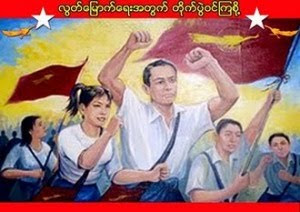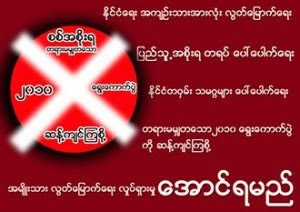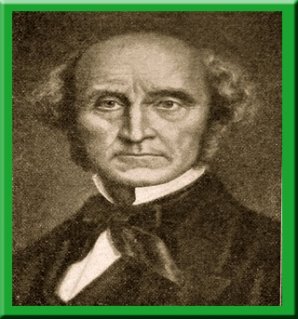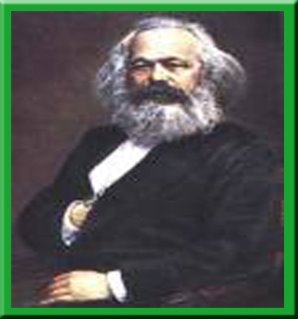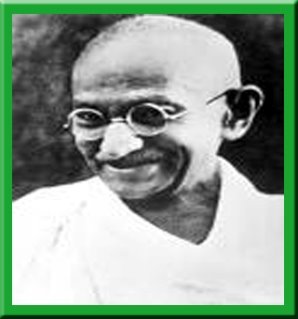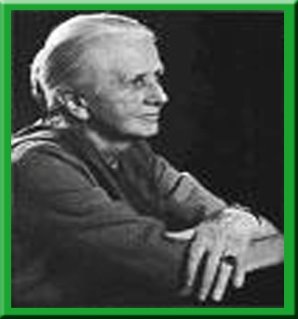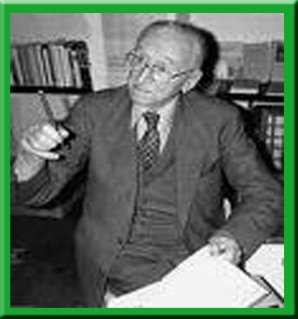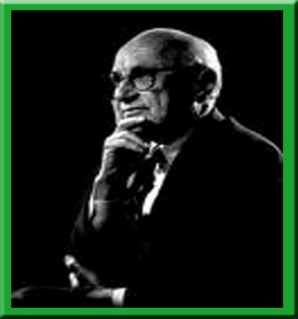Cultural claims, Power and Universal Human Rights
The end of the Cold World represented a radical reshaping of world politics. With the triumph of the West in the global geopolitical struggle, western states have asserted more respect for human rights and democracy in their foreign policies than before. A new pattern of geopolitical order – the hegemony of 'transnational liberalism' - has emerged mainly dominated by the United States and its European allies. Economic globalization has produced a global homogenous consumer culture and liberal reformism drove the transformation of non- western societies by means of the propagation of lifestyles, money, consumption, entertainment and the propagation of a set of norms and values such as human rights, democracy and market economy. As the new globalized modernity challenged all societies, the culture counter- revolution has emerged in the non- western world. The globalization of human rights has been challenged by these forces of reaction because it has provoked a debate about the cultural content of rights. In this essay, I would like to discuss about the role of human rights in international politics by using competing understandings of culture and arguments about how cultural claims inform the international order.
Universal Human Rights
Symbolically, the Universal Declaration of Human Rights by the UN General Assembly in 1948 is central in the post- 1945 modern agenda. It was the opening moment of the global human rights regime and later supplemented with the International Covenant on Civil and Political Rights and the International Covenant on Economic, Social and Cultural Rights. Further norms for universal domestic standards were also elaborated with an enormous growth during the second half of 20th century. With these extensions of rights, there has been an increasing focus in the international human rights discourse. For conventional defenders of human rights, the universal spread of respect for human rights is in the interests of all people around the world.
However, the universalism of the international human rights discourse has been challenged by fundamentalists, feminist critics and intellectuals. Prokhovnik (2004) identified four specific sets of problems and a wider concern for discourse as follows.
First, the rights discourse is not universal but is deeply informed by a Western Perspective. Second, feminist critiques dispute the universalism of rights and argue that they have a masculine basis. Third is the question of who can claim what rights against whom. The fourth problem relates to the way that individual rights may trump state sovereignty, and it challenges the human- centered feature of international rights discourse. (Prokhovnik, 2004: 242)
Recently, there has been a wider concern about the fourth issue of state sovereignty because the line between humanitarian intervention for human rights abuses and military intervention has become very blurred. It is questionable whether human rights provide a universal principle on which to justify intervention that trumps state sovereignty or not. However, there is no consensus to constitute sound arguments to justify intervention. Nevertheless, human rights language has become a source of power and authority in the post- cold war order.
The power of global rights
The debate on global rights is concerned with power at both national and international levels. At the national level, it is expressed in resistance or pro- democracy movements while it is expressed in criticisms of globalization as a form of Westernization and cultural imperialism at the international level.
From legal- institutionalist point of view, the power of global rights depends to a large extent on whether or not it supports the interests of powerful states and the creation of an independent international judiciary that has the power to enforce obedience to the law (Huysmans, 2004: 318). In this view, rights derive power from being translated into law that can be sanctioned by a sovereign authority. For instance, US President George Bush Senior justified the military intervention of Iraq in the 1990s in the name of international rule of law.
It is also argued that human rights will only be significant with a back up by a powerful state or coalition of states to enforce economic and military sanctions because there is no global human rights court for individual claims, a global police force and a prison system. So the power of global rights also resides with the relative economic and military power of the states trying to enforce.
On the other hand, the power of global rights has been challenged by a number of cultural claims because the propagation of global rights and values leads to cultural homogenization in different parts of the world. Likewise, the resistance to the global propagation of human rights also depends on the relative power of the states trying to oppose these rights. For instance, Asian Tigers resisted the propagation of human rights with their economic power. In the non- western world, there has a significant confrontation between the global rights and local cultural traditions.
Cultural claim of human rights as Western Centric
In 1948, Saudi Arabia objected to the Universal Declaration of human rights by arguing that universalism was destructive not just of undesirable differences between societies but of desirable and desired differences. In general, the human rights movement stressed the common humanity of the peoples of the world and ignored the fact about “things that distinguish people are as important as the things that unify people” (Brown, 2005 : 699). Across the world, societies clung to the familiar in terms of religion and associated values. Thus, Islam came into the frame in much of the post- cold world about the cultural claims.
Islamic conservatives argued that the notion of human rights is of Western Provenance, alien or even hostile to Islam. As their Islamic political orientation emphasized on authority, hierarchy, property, meticulous observance of ritual and correct conduct including segregation of the sexes and the covering up of women, these attitudes contested the values and ideas embodied in the universal rights.
Sometimes, religious revivalism reached to the form of extreme literalism termed fundamentalism and fundamentalists interpreted their faith to lead the way into political and social violence by claiming the legitimacy of God. As it took the form of reaction to modernity and to the insensitivity of the secular capitalist state and the market, political protest against the West has emerged. So fundamentalists denounce universal human rights as hypocritical imposition of Western imperialist values that are not compatible to Islam.
However, these claims were rejected by Islamic liberals by re-interpreting the sacred sources to accommodate a universalist notion of human rights, akin to natural rights doctrines in political philosophy. In addition, Islamic apologists also seek to appropriate the notion of human rights without reforming the elements of violation in religious law. (Zubaida, 2004: 295)
Nevertheless, many people in the Middle East now speak the language of democracy and human rights and there is a changing contest that people who belong to the cultural field expressed a desire to change the conditions of life for themselves. As Ignatieff claimed, human rights do not de-legitimize traditional culture because the people who make these claims are not foreign human rights activists, but the victims themselves. (Ignatieff, 2001: 110) In fact, human rights can be assumed as the moral possessions owned by all human beings at the top of any hierarchy of rights.
Assertion of Asian Values against Western Human Rights agendas
At the 1993 World Conference on Human Rights in Vienna, Asian countries argued that human rights were not universal, but the product of a Western culture based on industrialization and economic development. As Boyle (1995) claimed,
The West sought to use human rights as a stalking horse, to achieve global economic dominance over the developing and poorer world (Boyle, 1995: 84)
Likewise, several alternatives exit by the name of cultural relativism to maintain the traditional realist view of international politics that rights are an exclusively domestic issue. In Asia, Singapore and Malaysia led to oppose Western human rights agendas by asserting the existence of Asian values that could be counterpoised to the Western values associated with the international human rights regime. Based on this ideology, a number of Asian governments and intellectuals argued that Western governments, intergovernmental bodies, NGOs and journalists are engaging in a form of imperialism by using universal human rights to attack various state practices in South East Asia and elsewhere. (Brown, 2005:700) They also argued that enforcing universal human rights undermine Asian cultural identity that is based on collective rights, social responsibility, consensus and the family because Western rights only focused on individualism and selfishness.
However, Dworkin (1997) claimed that freedom of speech from universal human rights cannot be a selfish right that undermines social responsibility because the right of free speech is implied by the most basic, organic, social responsibility a people can have. (Dworkin, 1997: 19) Moreover, the most important point is that in a liberal rights culture, the principle of equality applies for everyone so that the rights holders are equal before the law. Furthermore, the call for universalism not only come from Western liberals but also from other liberals despite of its roots in western traditions.
Additionally intellectuals raised the issue of political opportunism that emphasized the opportunistic motives of those opposing universal rights. Ibrahim (1999) clearly pointed out these motives by arguing as:
Leaders who leapt on the convenient doctrine happened to be those who ruled in an authoritarian manner; naturally they singled out the strong state and respect for authority as the soul of Asian culture, closing their eyes to the humanistic aspects of the culture, its tradition of dissent and reform and the struggle for justice and freedom (Ibrahim, 1999: 26)
His argument produces one important underlying fact that the claims of Asian values result from the leaders in an authoritarian manner rather than the Asian community itself. So cultural claims of universal human rights such as proponents of 'Asian values' can be only seen as self- serving.
Feminist debates on Universal Human Rights
Traditionally, women were limited to the private sphere and subjected to the arbitrary power of the male head of the household all over the world. It is only recently in the Western liberal democracies that women are allowed to vote, to stand for office, to own property in their own name and the issues such as criminalization of rape in marriage and measures to prevent domestic violence against women are still controversial. So for non- western polities, the conditions for women are more worse and some feminists claim that the universal human rights make invisible the problems faced by women as a group.
Mainly, the feminist criticisms take two forms such that the rights for women may be difficult to enforce against the claims of the dominant and making effective a given right may have different implications for men and women. For instance, feminists argue that the right to employment may involve a transformation in childcare arrangements because without these transformations, equal rights may perpetuate inequalities. (prokhovnik, 2004: 245)
Moreover, it is also argued that a society should support the idea that the main goal for women is not to be married and have children but that women can choose to remain single, build up a career, and have different sexual partners because the women should have the right to redefine themselves and their respective positions within society ( Huysmans, 2004: 325)
In fact, the Declaration on the Elimination of Violence against Women already stated that states should condemn violence against women, and should not invoke any custom, tradition, or religion or other consideration to avoid their obligation with respect to its elimination. However, radical feminists argue that a different kind of thinking altogether is required for women rights.
Conclusion
In conclusion, the role of universal human rights in international politics has been challenged by different understandings of cultural claims. Although the human rights language limits the degree of acceptable variation in social practices, rights are so powerful as a political discourse for helping people to mobilize in political situations to improve conditions of life. In my point of view, where universal human rights are acknowledged, the conditions of life for the people are safer and more dignified rather than where they are not because liberal view on rights can privilege an account of human dignity.
Khin Ma Ma Myo
References
Brown, C. (2005) “Human Rights” in Baylis, J. & Smith, S. (eds.) The Globalization of World Politics: An Introduction to International Relations, 3rd edition, Oxford University Press, Oxford
Dworkin, R. (1997) “ The dragon as despot”, The Guardian, 22nd May, p.19
Huysmans, J. (2004) “ Culture, rights and justice in a globalizing world” in Brown, W.; Bromley, S. & Athreye, S. (eds.) Ordering the International: History, Change and Transformation, Pluto Press, London
Ibrahim, A. (1999) “ Young Asians will no linger allow the tiger of economic success to gorge on their human rights”, The Observer, 18 April, p.26
Ignatieff, M. (2001) “ The attack on Human Rights”, Foreign Affairs, Vol. 80, No. 6, pp. 102-16
Prokhovnik, R. (2004) “ Rights and justice in International Relations” in Brown, W.; Bromley, S. & Athreye, S. (eds.) Ordering the International: History, Change and Transformation, Pluto Press, London
Zubaida, S. (2004) “ Culture, international politics and Islam: debating continuity and Change” in Brown, W.; Bromley, S. & Athreye, S. (eds.) Ordering the International: History, Change and Transformation, Pluto Press, London




















